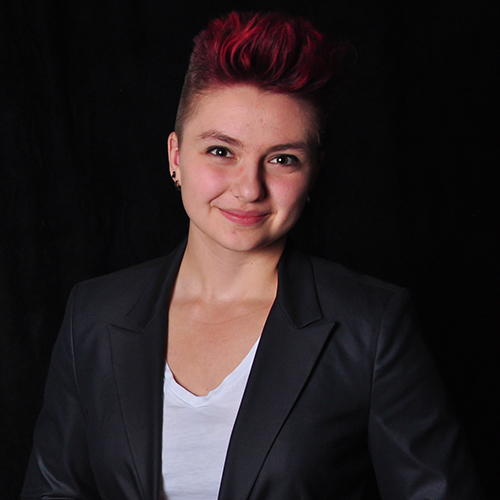Tesca Fitzgerald: Developing Algorithms to Help Robots Adapt to Novel Situations
The School of Engineering & Applied Science is proud to welcome its newest faculty members for the 2022-23 academic year. The large influx of faculty members – 13 so far, with more to be announced soon – marks the rapid growth of the School and investment in the research areas illustrated in the SEAS Strategic Vision.
The latest faculty arrivals are valuable additions to the chemical and environmental, computer science, and electrical engineering departments. Their expertise includes sustainability, artificial intelligence, robotics, quantum computing, cybersecurity, and optoelectronic materials.
Upon their arrival, we asked these new faculty members questions about their work, their motivations, potential collaborations, and much more:

Tesca Fitzgerald, Computer Science
Hometown:
Portland, OR
Prior academic history:
- Postdoc, Carnegie Mellon University's Robotics Institute
- Ph.D., Computer Science from Georgia Tech
- B.Sc., Portland State University.
How would you summarize your research?
As robots become more commonplace in human environments, they will need to adapt to novel task variations (such as novel tools, goals, or constraints) that they have not been trained to address. I develop algorithms that enable a robot to ask for help in these situations. My research provides methods for structuring and interpreting a robot's interactions with a human teacher so it can quickly learn and adapt its task knowledge to novel situations.
What inspired you to choose this field of study?
I'm fascinated by how well people can improvise to solve problems, whether that involves making use of a makeshift tool in a pinch or negotiating with teammates to develop shared strategies on-the-fly. Social learning plays a large role in this improvisational ability, both in learning from observing how others complete tasks (as in the tool example) or in reasoning over the goals and intentions of others (as in the team strategy case). Developing this kind of social learning ability in robots is a huge challenge, but very rewarding if it can enable robots to learn more effectively and intuitively in our everyday lives.
Where do you see the field 10 years from now?
There has been a lot of research on enabling robots to learn from experience, but relatively little work about detecting when a robot has learned "enough" to successfully apply what it has learned in a new scenario. In 10 years, I believe that there will be more focus on meta-reasoning, with the aim of enabling robots to reason over what they do and don't know about objects, skills, or task goals.
What brought you to Yale?
Yale's Computer Science department is rapidly growing, and I am excited to be a part of its new developments! Additionally, Yale is already home to strong research work in AI and social robotics across multiple departments, and provides the perfect group of collaborators to make my new research lab successful.
What areas outside of Computer Science do you seek to create impactful research collaborations or partnerships?
My research approaches are heavily inspired by processes of human cognition and will benefit from collaborations with researchers in Cognitive Science. I also look forward to working with Human Factors researchers to develop robot teammates that are intuitive and easy for people to work with.
Are there any courses that you look forward to teaching/creating?
Yes! I'll be introducing a new graduate-level seminar on Interactive Robot Learning this Fall. I am also looking forward to teaching CPSC 470 (Artificial Intelligence) in the future.
What are your interests outside of the lab?
I love being active outdoors – camping, hiking, kayaking, skiing are all favorites. I especially love long-distance cycling and have done several multi-day trips by bike. I'm excited to tackle the Empire State Trail next! Indoors, I enjoy baking and caring for houseplants (both of which started as pandemic hobbies).
What is the best New Haven Pizza?
I haven't had a chance to find out yet! But don't worry, I will make this a priority :)

